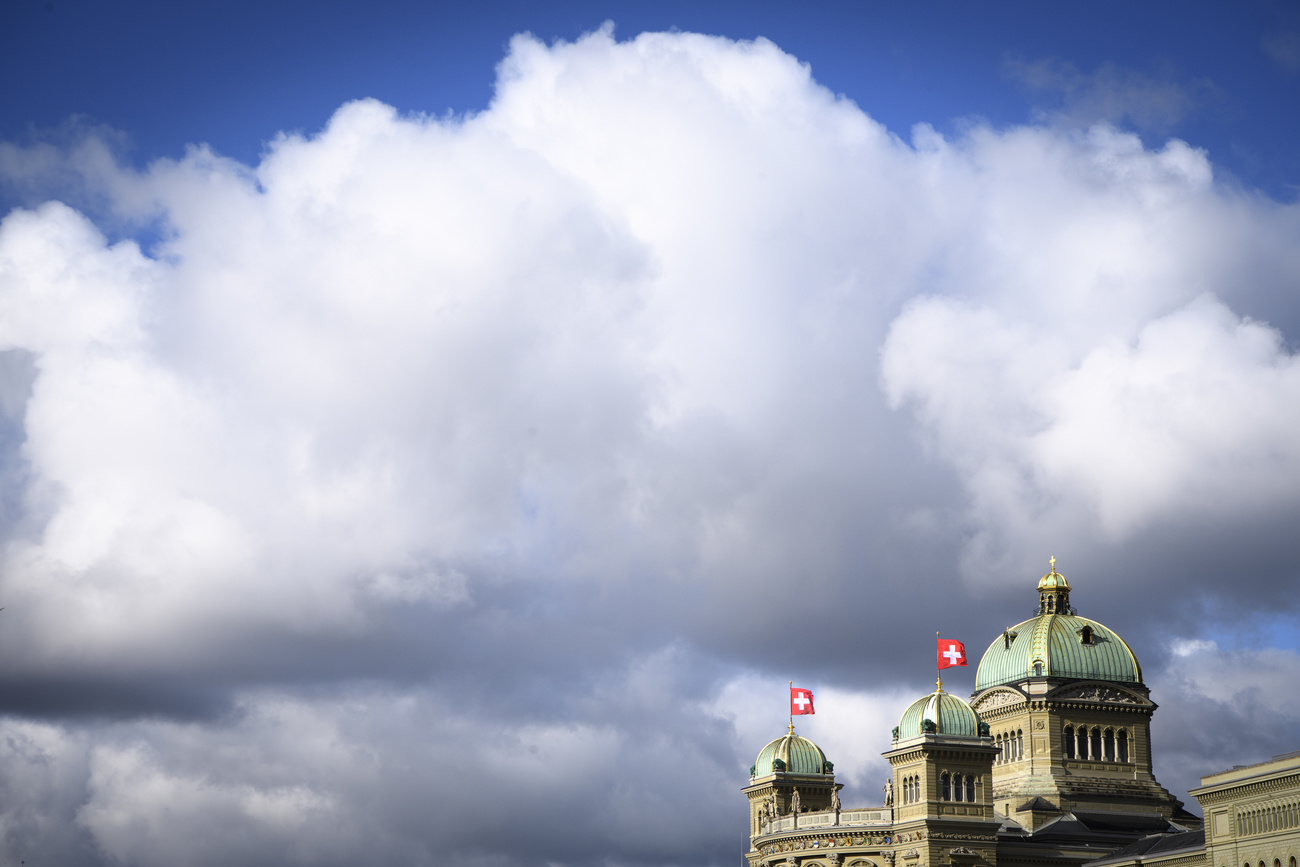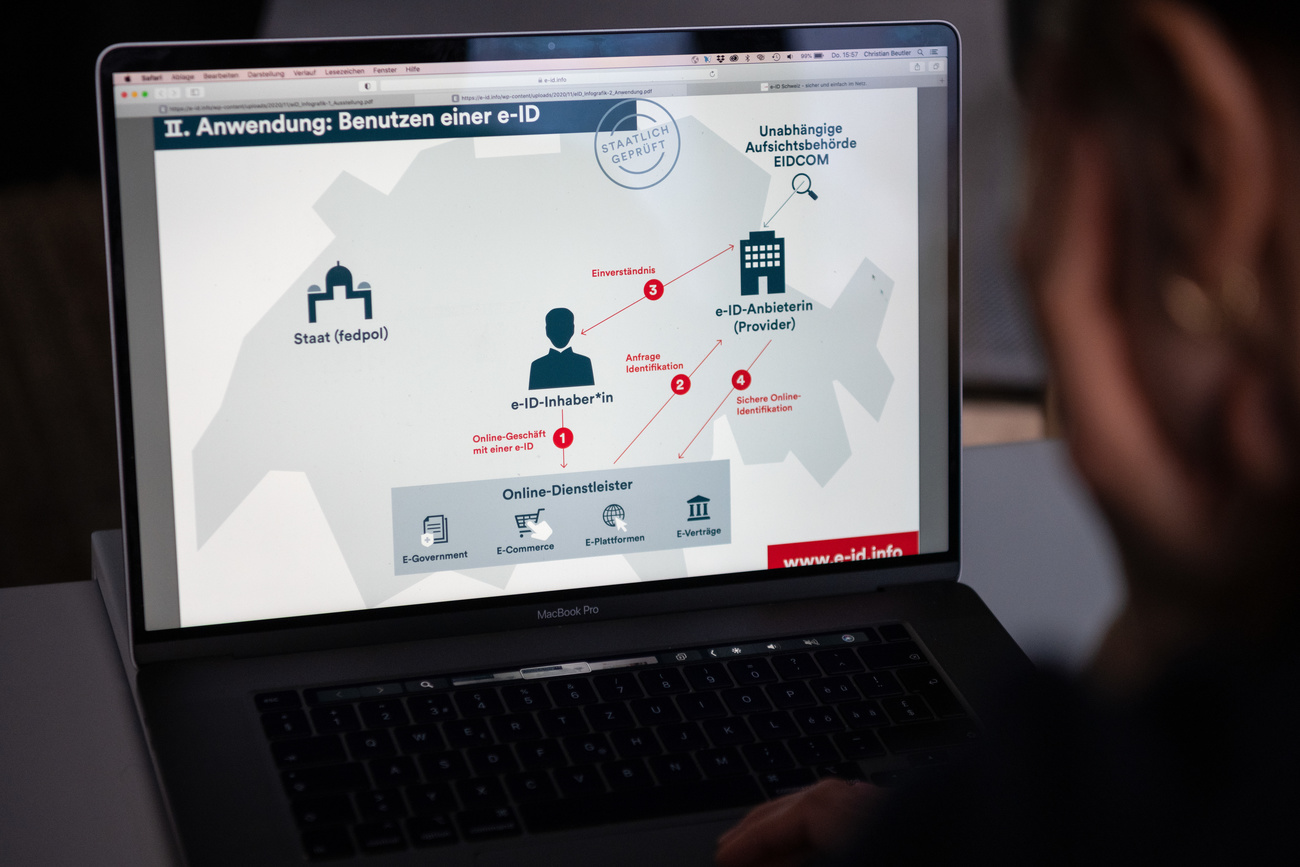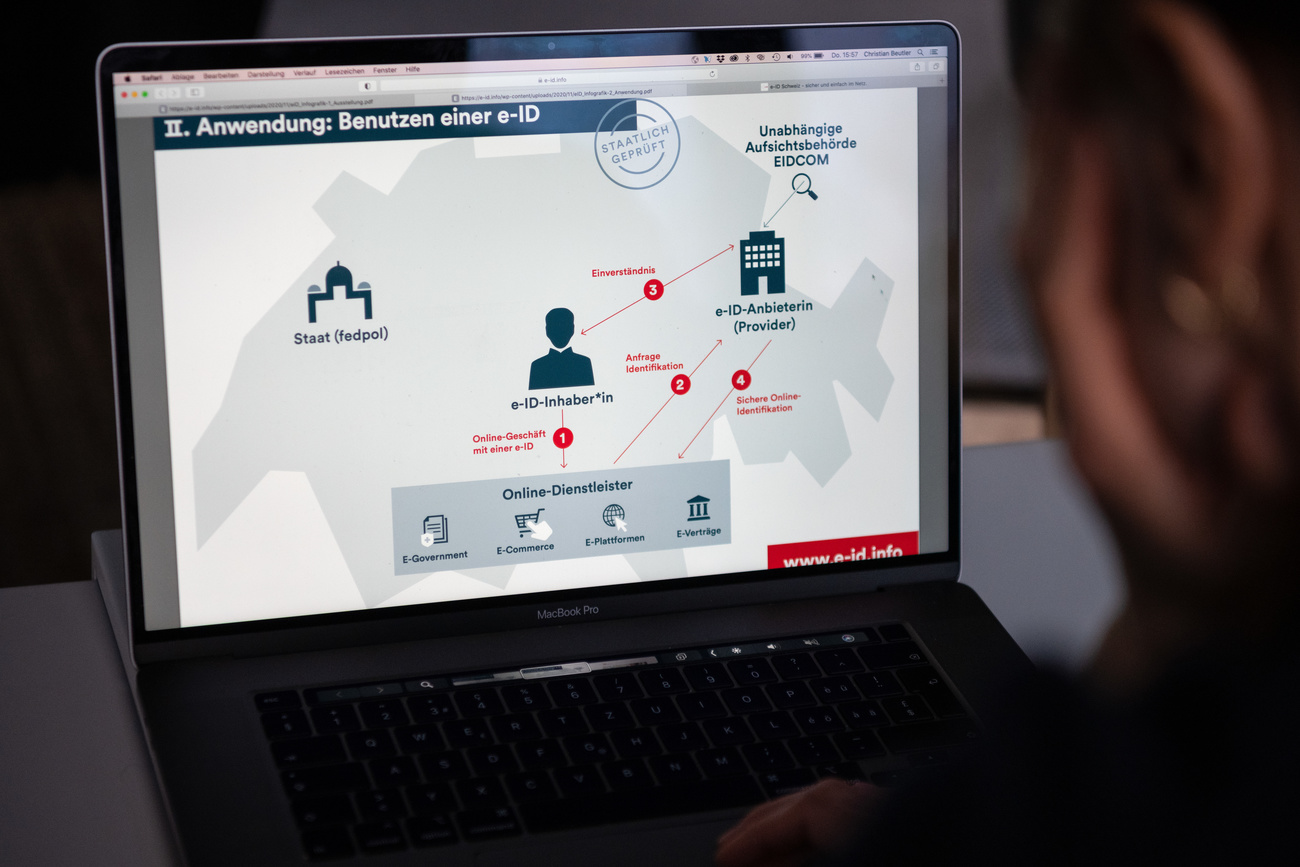What you need to know about the Swiss spring parliamentary session

The Swiss parliament is meeting in Bern for the spring session. The Swiss Abroad will be directly affected by many of the motions and proposals put forward. One of the main issues that will affect the Swiss Abroad is the planned reduction in child pensions for retired individuals.
A major item of business in the upcoming session is the planned termination of child pensionsExternal link for retired Swiss Abroad. Parents of retirement age receive a child pension if their children are still minors or in education. This is rarely the case for women and it is mainly older fathers who benefit from this pension system.
Child pensions cost the Swiss federal government around CHF230 million ($261 million) a year. This is, however, a small amount compared to other old-age and survivors’ pensions. That said, the number of pension recipients is growing. Between 2010 and 2020, the number of individuals receiving child pensions increased by over 10,000 to around 32,000 recipients. Additionally, the number of Swiss Abroad who receive such a pension for children in their care has grown disproportionately strongly.
Foreign workers who have returned to their home country and the Swiss Abroad make up one third of child pension recipients. Most pension funds flow to Switzerland’s neighbouring countries, France, Germany and Italy, .
Child pension payouts increase abroad
The strongest growth of individual recipients of child pensions is in Thailand. The pensions paid out to Swiss Abroad in Thailand increased from CHF250,000 in 2001 to CHF4.5 million in 2022.
One reason for this increase is a regulation that has been increasingly utilised by older Swiss men in recent years: child pensions are also paid abroad for foster children, including for children of local Thai women. A child’s pension is between CHF490 and CHF980, depending on the years of contributions and the amounts paid into the pension system by the individual receiving the pension.

The pushback against retirement child pensions comes from the House of Representative’s social affairs and health committee. The committee argues that the annulment of retirement child pensions is a potential savings for the federal pension system. Furthermore, it goes on to say that doing away with the child pensions would also eliminate discrimination, as a large majority of older men benefit from this pension. To compensate for the loss of retirement child pensions, the committee proposes that individual supplementary benefits should increase if necessary.
Swiss Abroad at a disadvantage
However, only individuals within Switzerland are entitled to individual supplementary benefits. Returning foreign workers in Portugal or retired Swiss Abroad in Thailand, Brazil or the Philippines are not entitled to supplementary benefits.
The Organisation of the Swiss Abroad (OSA) criticises the commission for ignoring the Swiss Abroad. Child pensions would be cancelled without supplementing the pension benefits for the Swiss Abroad with low pension amounts if the social affairs and health committee motion is implemented.
“The OSA therefore rejects the motion in its current form,” it writes in a statement. “If it is adopted, the Federal Council should urgently consider the situation of low-income Swiss parents abroad.”
These circumstances have become increasingly important as the cost of living in Switzerland has become a reason for many pensioners to emigrate. The motion will come before the House of Representatives on March 7.
High hopes for the Swiss e-ID
On March 14, the House of Representatives will discuss the introduction of an electronic identity (e-IDExternal link). This is also very relevant for the Swiss Abroad. It would enable e-government solutions and make it easier for the Swiss Abroad to contact the authorities.
“In the longer term, an e-ID could also enable a completely paperless e-voting process, which would make it easier for the Swiss Abroad to exercise their political rights,” says the OSA. The organisation therefore recommends the House of Representatives approve this bill.
Three years after the no vote at the ballot box, this is a new attempt at an e-ID, this time with a state-sponsored solution. Electronic proof of identity is to be offered from 2026. It is to be voluntary and free. The first e-ID Act proposal was put forward with a private company solution and was defeated at the ballot box in March 2021.
We spoke to OSA Director Ariane Rustichelli in Let’s Talk about the introduction of the e-ID, available in German.
For the more than 200,000 Swiss Abroad living in France, a supplementary agreement between SwitzerlandExternal link and France to avoid double taxation could come as a relief.
Similarly, an agreement between Switzerland and SloveniaExternal link, where around 470 Swiss nationals live, will also be presented to the House of Representatives. These two proposals are generally uncontroversial and allow for additional legal certainty.
A session blooming with ideas
This spring session will see the Swiss parliament exchanging interests as well as producing a number of new ideas.
For example, Carlo Sommaruga, a member of the Senate from canton Geneva, intends to keep the spotlight on the ongoing e-voting trials and will make a formal request to parliament on the prospects for e-voting.
The Greens want to impose a climate levy on flights. They propose a levy of CHF0.01 per kilometre of the flight. In practice, this would increase the ticket price of a flight to Berlin by CHF27 or a flight to Los Angeles by CHF115.
Another initiative from the Greens aims to rehabilitate the 466 Swiss men and women who fought on the side of the Allies in the French Resistance during the Second World War. These Swiss individuals ultimately aided in the survival of Switzerland. However, Switzerland had condemned them “in absentia”, unless they were killed in action, for serving in a foreign army.
Russian money for Ukraine?
The current war in Ukraine will also be a topic in the spring session. A fund for the reconstruction of Ukraine is up for debate. The finance committee of the House of RepresentativesExternal link has called for this fund. A conservative minority is opposed to the proposal of establishing a fund from Russian assets. A similar motion has also been put forward in the SenateExternal link. Neither motion mentions a specific amount to be contributed into the fund.
However, if it accepts the proposal for the creation of a fund for Ukraine using Russian assets, Switzerland must first create the legal basis. The Senate has to manage five identical motions from the House of Representatives in accordance with this legal proposal.
Translated by amva

In compliance with the JTI standards
More: SWI swissinfo.ch certified by the Journalism Trust Initiative












You can find an overview of ongoing debates with our journalists here . Please join us!
If you want to start a conversation about a topic raised in this article or want to report factual errors, email us at english@swissinfo.ch.